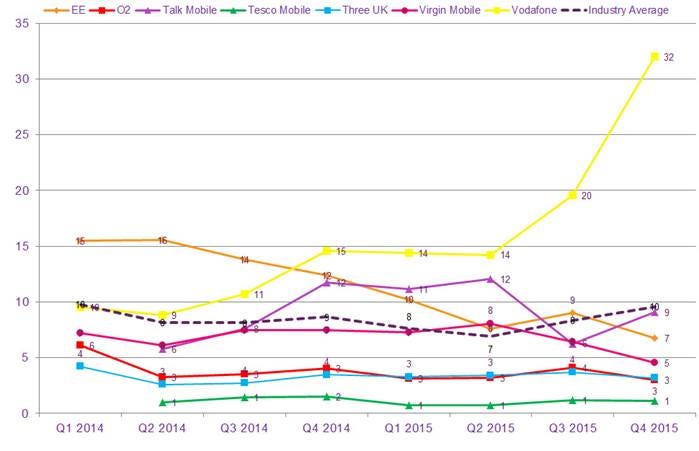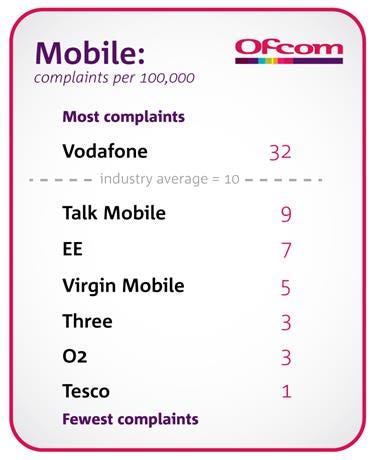O2 slowest 4G in UK, EE fastest - OfcomO2 slowest 4G in UK, EE fastest - Ofcom
Ofcom has released the results of a recent mobile network quality assessment it undertook, proclaiming EE to have the highest quality network in the country, with O2 lagging behind.
March 31, 2016

Ofcom has released the results of a recent mobile network quality assessment it undertook, proclaiming EE to have the highest quality network in the country, with O2 lagging behind.
It’s widely acknowledged the recently-acquired BT subsidiary has the broadest 4G coverage in the UK, and Ofcom’s research revealed it supplies the fastest download and upload speeds and the highest percentage of speeds over 2 Mbps.
Ofcom undertook analysis of mobile network quality in five major UK cities including London, Cardiff, Edinburgh, Liverpool and Norwich, which the regulator said was to “capture a snapshot of ‘real-world’ service quality levels for 4G networks… reflecting the everyday usage habits of smartphone users.”
Results showed the average 4G download speed was as high as 17 Mbps, almost three times faster than the 6 Mbps 3G networks allegedly see. While the results showed EE as the fastest and most reliable operator, there’s bad news for O2 customers as the Telefónica-owned operator registered the slowest average download speeds, upload speeds, the lowest percentage of speeds over 2 Mbps and the slowest web browsing experience. The table below shows the headline stats from the report:

Comparison site Cable.co.uk was quick to pour cold water on the research, saying consumers should take the stats with a pinch of salt.
“Those looking to sign up with or switch to a new provider should check the coverage maps of all four of the UK’s network providers (EE, Vodafone, Three and O2) and choose the provider with the best coverage in the locations where they spend most of their time,” said Dan Howdle, telecoms expert at Cable.co.uk. “And there are other factors to consider. Yesterday, Ofcom’s quarterly complaints report named Vodafone the most complained about UK network provider. An extra megabit here and there pales to insignificance next to a strong signal, good value for money, flexibility of data usage (tethering) and, of course, great customer service.”
Indeed, Howdle’s comments on Ofcom’s complaints report highlights significant shortcomings for Vodafone. Earlier this week, Ofcom announced the results of some analysis it undertook in tracking the number of complaints made to mobile operators over a three month period. While covering landline telephony, pay TV and home broadband complaints, the report also focused on pay-monthly mobile complaints per 100,000 customers. In this case, Vodafone received more than three times the number of complaints than the industry standard, with 32 complaints per 100,000 people. This represented nearly three and a half times the number of complaints of its nearest competitor, Talk Mobile.
The full tables for complaints per major mobile company are below:


About the Author
You May Also Like










.png?width=300&auto=webp&quality=80&disable=upscale)


_1.jpg?width=300&auto=webp&quality=80&disable=upscale)